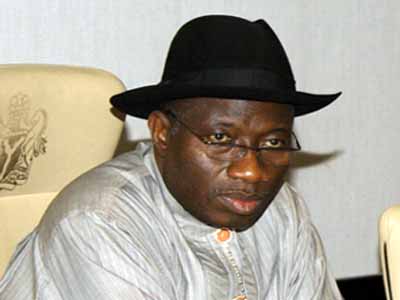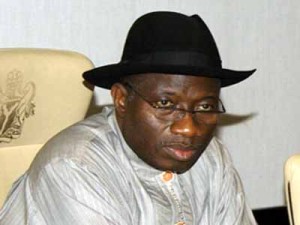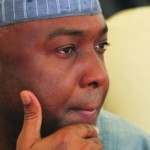Jonathan’s Foreign Trips: Benefits To The Political Economy
Articles/Opinion Saturday, December 21st, 2013
By Sylvester Okoro
In the wake of President Goodluck Jonathan’s recent London visit, where he presided over the Honorary International Investors’ Council meeting, Nigerians have the right to ask what benefits his foreign trips have brought to the country (and by extension her citizens).
As a concerned Nigerian, this writer is only interested in an objective assessment of what the nation has gained or stands to gain from the various trips that the President has embarked on since coming into office over two years ago.
First, it is only fair to accept that visits to foreign countries by any head of state or government are an integral aspect of the office holder’s job description. Except for countries with pariah status, there is no leader of a free country that does not embark on visits to other countries from time to time. The aims of such trips vary from country to country and are determined by each country’s situational priorities. They range from purely diplomatic, economic, to even military concerns and beyond.
For a country like Nigeria that is in need of major economic boosts in order to speed up her infrastructure development, improve gross domestic product (GDP), and overall quality of life indices, it follows that beyond the pomp and ceremony that accompanies presidential visits to foreign lands, President Jonathan should always use the occasion of any state visit to another country to further our economic interests. And furthering Nigeria’s interest should be examined in ways that apply directly to the ordinary citizen.
In this regard, this piece will focus on the President’s visit to China this past July, to negotiate the largest Direct Foreign Investment (DFI) loan ever, as a case study to determine the needfulness (or the lack thereof) of his foreign trips. The China trip is worthy of scrutiny for several reasons but the primary one may be because the contingent the President led to China was a large one. Four state governors and thirteen cabinet ministers were part of the entourage, and so were several captains of Nigeria’s private sector.
One may question why President Jonathan went to China with several people. In fairness, the answer is almost self-evident. China is no ordinary country. Besides being a military superpower with the largest population of any country on earth, China has also emerged as a major economic powerhouse in the last decade or so. Moreover, in recent years, China has made significant strategic economic incursions into African countries (including Nigeria) and invested billions of US dollars in such ventures.
It is against this situational backdrop that Jonathan’s Chinese adventure should be studied. Statistically, as Jonathan said, “At present China and Nigeria have annual bilateral trade exceeding US$13 billion.” In 2002, the figure stood at a US$2 billion. Without a doubt, such an astronomical leap calls for closer economic ties.
But beyond the huge amounts of money being bandied about by government officials, the pertinent question is, do these Memorandums of Understanding (MoUs) have any tangible effect on the lives and wellbeing of ordinary Nigerians? The answer, without going into any pontificating (which may be regarded by many Nigerians as the usual rigmarole of officialdom), is an unequivocal yes!
This is because, for instance, the US$100 million Small and Medium-Scale Enterprises (SME) MoU, which was signed between First Bank of Nigeria, Plc and China Development Bank, will directly translate into more economic empowerment and employment opportunities for ordinary Nigerians. After all, the SME sector, as Minister of Industry, Trade and Investment, Dr Olusegun Aganga, pointed out, already provides jobs for close to 32 million Nigerians. And while some may argue that only members of the elite class are likely to benefit from the MoU on Aviation that will see the construction of four new international terminals in Lagos, Abuja, Port Harcourt and Kano, the MoU on electricity is aimed at providing 20,000 megawatts of power that will be available to all Nigerians.
To avoid a lengthy treatise that would merely serve to reiterate an obvious fact ad infinitum, it is fair to conclude that, based on the case study reviewed above, all available evidences point to a remarkable performance on the part of the President when it comes to the matter of furthering the economic interest of Nigerians while on foreign visits.
Indeed, the President may actually need to embark on more economically strategic foreign trips in the best interest of the country. This is because whether Nigeria can create new industries and generate opportunities for new jobs for its teeming population of young and agile citizens depends entirely on the quality and functionality of the enabling infrastructure which only government is in the best position to galvanise.
To be clear, let no one forget that the revolution in the field of Information and Communication Technology (ICT) has changed the way people all over the world live, work and conduct business today. Wherever there is a reliable Internet connection, the potentials are almost limitless. But in order to successfully tap into this ever-growing field, Nigeria needs the goodwill and support of well-intentioned foreign partners. And these partners will not come knocking at our door if the President just sits at home all the time and does not embark on necessary foreign trips.
And this is precisely what the President achieved on his China trip. According to Dr Aganga, who was among the officials that accompanied President Jonathan on the trip, “there were very important and strategic MoUs that were signed.” Of course, to the average Nigerian, MoU is just another “big grammar” and may even be a bit annoying if a clear-cut explanation is not immediately offered.
President Jonathan and his Chinese counterpart, Mr Xi Jinpin signed five bilateral agreements including the Framework Agreement on Comprehensive Financial Cooperation in support of Nigerian’s economic development, the Preferential Buyer Credit Agreement for Nigeria’s four airports expansion projects, Agreement on Economic and Technical Cooperation, Agreement on Mutual Visa Exemption for holders of diplomatic and official passports; and Agreement for the prevention of theft, illegal import and export of cultural property.
Within the context of the bilateral agreements, some major were MoUs signed during the China trip in the areas of Small and Medium-Scale Enterprises (SMEs), Aviation and Electricity. In money terms, these MoUs are worth US$100 million, US$500 million and US$20 billion respectively. In addition to these, Bauchi State Government signed aUS$260 million MoU to generate 120 megawatts of power. Dr Aganga’s ministry also signed a Memorandum of Understanding (MoU) valued at US$900 million.
Okoro sent this piece via sylvesterokoro@yahoo.com
Related Posts
Short URL: https://www.africanexaminer.com/?p=6276






















